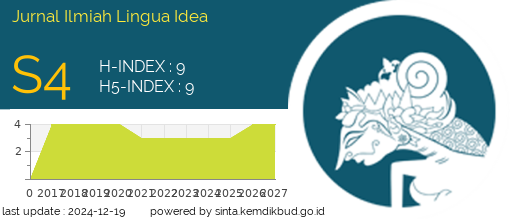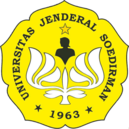a comparative study on refusals in english by indonesian learners and native speakers of english
Abstract
This article compares refusals in English by Indonesian learners and native speakers of English. The study was done within the framework of pragmatics and particularly under the scope of speech acts. The goal was to get to know the refusals made by the two groups of respondent in terms of the number of speech act, the forms of speech acts, and the politeness strategy used in the refusals.The research involved 30 respondents consisting of 15 Indonesian Learners and 15 native speakers of English, who were Australians. The Indonesian learners were the second year students of the English Department of Universitas Gadjah Mada, while the native speakers were the students of the Indonesian Language and Culture Learning Service (INCULS) of the Faculty of Cultural Sciences, Universitas Gadjah Mada, Yogyakarta.The result showed that both groups of respondent shared some similarities in terms of the form of speech act used in their refusals. However, compared to the Indonesian learners, some of the native speakers expressed refusals in single speech acts and a combination of two speech acts. Fewer refusals by the native speakers were expressed in a combination of three and four speech acts. Another finding was that the two groups applied different politeness strategy to their refusals. Some of the Indonesian learners showed deference on their refusals, while some of the native speakers gave offers on their refusals. This study hopefully gives more insights about pragmatics, especially about refusal, and is also useful and helpful for other similar studies in the future
Authors who publish with Jurnal Ilmiah Lingua Idea agree to the following terms:
- Authors retain copyright and grant the journal right of first publication with the work simultaneously licensed under a Creative Commons Attribution License (CC BY-SA 4.0) that allows others to share the work with an acknowledgment of the work's authorship and initial publication in this journal.
- Authors are able to enter into separate, additional contractual arrangements for the non-exclusive distribution of the journal's published version of the work (e.g., post it to an institutional repository or publish it in a book), with an acknowledgment of its initial publication in this journal.
- Authors are permitted and encouraged to post their work online (e.g., in institutional repositories or on their website) prior to and during the submission process, as it can lead to productive exchanges, as well as earlier and greater citation of published work.





















.png)




_.png)


